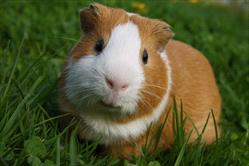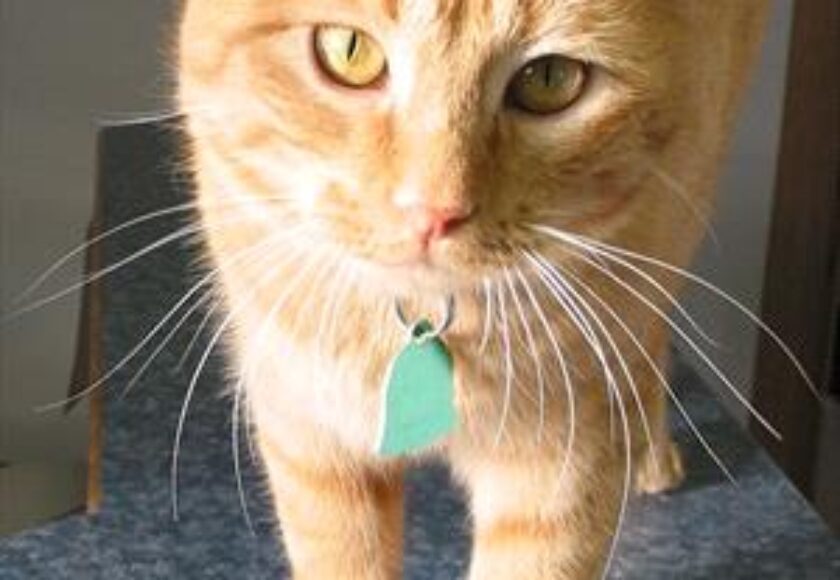Although veterinarians know a great deal about dilated cardiomyopathy (DCM) in dogs because it is so common in that species, they don’t know as much about heart conditions in guinea pigs. There simply hasn’t been much heart research done for them because there isn’t nearly as much funding, but there is enough to provide more than educated guesses. Also, many diagnostic efforts in other small mammal species can be used for guinea pigs.

While there are several kinds of cardiomyopathy, at this time, it seems that guinea pigs only get DCM.
DCM is a disease in which the heart muscle weakens and cannot pump normally. As we and all mammals have four chambers, or atria and ventricles, in our hearts, so do guinea pigs. They may have issues with valves, the anatomical parts of the heart that let blood flow in the right direction through these chambers. Sometimes these valves can stop working properly over time, or there may be other issues with the heart, causing it not to pump as well as it should. This can create a cascade of other effects in which the heart enlarges and one or more heart valves leak, usually resulting in congestive heart failure.
Guinea pigs showing signs of respiratory distress should always be evaluated for heart disease. Respiratory distress may look like open-mouth breathing, panting (moving the chest and abdomen drastically while breathing, or coughing).
Signs of DCM in guinea pigs may include:
- a “hooting” vocalization;
- labored breathing;
- reduced activity and lethargy;
- cough or wheezing;
- chronic upper respiratory infections;
- fluid in the lungs;
- loss of appetite and weight loss;
- malocclusion (teeth that have not come in normally);
- enlarged heart is seen on an X-ray;
- ear margins may become necrotic from poor circulation
(tissue death on pink ears appears as black marins, on black ears as white margins); - bluish or pale mucous membrane color;
- difficulty coming around after being put under anesthesia; and
- deep sleeping, easy to pick up (does not run away).
We don’t really know why guinea pigs get DCM, and no one knows how much diet and genetics play into it. Some guinea pig owners report to their veterinarian that heart problems can run in families, so genetics likely plays some part.
Enlarged hearts are not uncommon in guinea pigs and have several causes. For hearts that are simply enlarged, X-rays are usually enough for diagnosis, but that is not quite enough for DCM.
For DCM, a thorough examination and history are always necessary to rule out other serious medical conditions, such as sinus infections, tumors, and dental disease. Your veterinarian will listen to your pig’s heart, using a stethoscope, to see if there are any unusual sounds, observe the respiratory rate, and look at the gums as pale or bluish (cyanotic) gums signify poor blood circulation. To diagnose heart conditions, X-rays, electrocardiograms that record the heart’s electrical signals, and ultrasounds are used. Guinea pigs are usually anesthetized for the electrocardiogram.
If your clinic does not have the right diagnostic equipment in the right size, your veterinarian may refer you to a facility that does.
Heart disease is not curable but only managed. Overall, the prognosis for guinea pigs with dilated cardiomyopathy is poor, and many do not survive for more than three months after diagnosis. The enzyme angiotensin II constricts blood vessels, reducing blood flow, so a type of medication called an ACE inhibitor (angiotensin-converting enzyme) is used for mild cases of DCM, often combined with diuretics that cause water loss, lessening pressure on the fluid-filled lungs. These two drugs seem to be safe and effective in guinea pigs. DCM typically ends in heart failure, and these drugs normally slow down the inevitable. Your guinea pig may need to be re-examined at certain intervals, and higher doses or additional medications at some point may be necessary as well.
As always, discuss your options with your veterinarian to decide what may be best for your pet.

